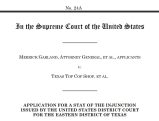
The Corporate Transparency Act (CTA) introduces stringent federal regulations, impacting millions of corporations and LLCs in the U.S. Understanding and adhering to these new mandates, including beneficial owner registration and avoiding shell company misuse, is crucial to avoid severe penalties, including hefty fines and prison time.
by LawInc Staff
December 2, 2023
With over 6 million corporations and limited liability companies (LLCs) formed in the U.S. annually, business entity creation is ubiquitous. However, the recent Corporate Transparency Act (CTA) imposes new federal regulations with serious criminal implications for non-compliance.
Failure to follow CTA disclosure mandates applicable to your corporation or LLC can result in major fines up to $500 per day and up to 5 years prison time. By understanding key requirements and proactively maintaining compliance, you can avoid substantial legal risks.
1. Not Registering Beneficial Owners

Essential Elements of Beneficial Owner Registration Under CTA
-
- Required Disclosure: All covered U.S. corporations and LLCs must report details on individuals owning 25% or more equity.
- Strict Deadlines: Existing entities formed before January 1, 2024, have until December 31, 2024, to comply with the reporting requirements. New entities formed on or after January 1, 2024, have 90 days from the date of formation to file their initial report.
- Enforcement Action: Failure to disclose beneficial owners invites strict fines up to $500 per day and potential criminal charges.
Example:
-
- ABC Inc faced $500 daily fines for not reporting beneficial owners as required under the CTA, totaling $72,500 over 5 months.
- John went to prison for 1 year and paid a $10,000 penalty for his LLC’s failure to properly register ownership.
How to Avoid:
-
- Confirm if your entity needs to submit beneficial owner registration.
- Ensure all individuals meeting reporting criteria are properly disclosed.
- Leverage corporate services firms to maintain compliance.
Frequently Asked Questions:
-
- Does the CTA apply to my business structure? Covered entities include corporations, LLCs, and foreign equivalents.
- What are the penalties for non-compliance? Up to 5 years imprisonment and/or fines from $500 to $10,000 per day for reporting failures.
2. Using Shell Companies

Understanding the Legal Boundaries of Shell Companies
-
- Illegal Structures: Maintaining undisclosed, inactive entities solely for financial concealment invites felony charges.
- Avoid Deception: Falsely reporting company details or using false identities on filings can lead to 3 years prison time.
- Ethical Operation: Ensure businesses serve legitimate legal purposes with accurate CTA disclosures.
Example:
-
- Michelle went to jail for 15 months for registering two shell companies using false identities and details to hide funds.
- CTA regulators dissolved Paul’s network of three inactive corporate entities used solely to conceal money and assets.
How to Avoid:
-
- Ensure businesses serve legitimate legal purposes.
- Accurately disclose beneficial owners to regulators.
- Avoid false representations or deception within filings.
Frequently Asked Questions:
-
- Can I still form entities in nominee names? No, proxies must reveal identities of true beneficial owners.
- What are examples of legitimate corporate purposes? Operating active legal businesses, real estate investing, running side businesses.
3. Failing to Update Details

Essential Updates for Corporate Compliance
-
- Mandatory Refreshes: CTA requires confirming accuracy of beneficial owner details every 2 years with potential $500 daily fines for non-compliance.
- Prompt Updates: Changes to registered ownership or entity details must amend within 30 days or expect penalties.
- Diligent Tracking: Lack of monitoring invites easily avoidable non-compliance issues.
Example:
-
- Susan’s company paid $7,500 in fees over 15 days for failure to confirm beneficial owner data accuracy within the required 2-year window.
- Changes to LLC ownership that Mary neglected to report for 45 days resulted in a $5,000 penalty plus potential criminal charges.
How to Avoid:
-
- Calendar biennial beneficial owner verification deadlines.
- Develop internal processes to capture reportable changes.
- Leverage corporate services firms for compliance support.
Frequently Asked Questions:
-
- What triggers the need to update my CTA filing? Changes in ownership percentages, identity details, addresses or entity status.
- Can my registered agent handle compliance? Yes, but responsibility ultimately lies with the business itself.
Quiz
Assess Your Understanding of Corporate Transparency Act Compliance Requirements
-
- Q1: What is the deadline for existing entities to register beneficial owners under the CTA?
- Q2: Can shell companies still be used if accurate details are reported?
- Q3: How often must beneficial ownership details be disclosed under the CTA?
- Q4: What is the penalty for not registering beneficial owners?
- Q5: Do LLCs need to comply with CTA reporting rules?
- Q6: Can someone go to jail for not disclosing complete beneficial owner details?
- Q7: If ownership changes, how long does the CTA provide for reporting updates?
- Q8: An individual formed an LLC but never used it. Do they still need to comply with the CTA?
- Q9: Can law enforcement request beneficial ownership details from regulators without a subpoena?
- Q10: Are inactive “shelf” corporations exempt from beneficial owner reporting rules?
- Q11: Can registered agents like lawyers handle CTA compliance filings for an entity?
- Q12: Do foreign-owned entities operating in the U.S. need to comply?
- Q13: What happens if IRS reporting does not match CTA filings?
- Q14: Is it illegal for an LLC to not to report an owner who wants to stay private?
- Q15: Can someone be both a beneficial owner and registered corporate agent for the same entity?
- Q16: What is the maximum prison sentence for willful, illegal violations?
- Q17: Do entities need to prove compliance with CTA regulations when challenged?
- Q18: Can non-owners act as nominee beneficial owners?
- Q19: Are new entities formed during 2024 still required to register beneficial owners?
- Q20: What happens if an entity is caught providing false beneficial ownership details?
Check your knowledge below!
Answers:
Q1: By 12/31/2024
Q2: No
Q3: Upon entity formation and any changes
Q4: Up to $500 daily fine; criminal charges
Q5: Yes
Q6: Yes, up to 5 years prison time
Q7: 30 days
Q8: Yes
Q9: Yes
Q10: No
Q11: Yes
Q12: Yes
Q13: Risks audit, penalties
Q14: Potentially
Q15: No
Q16: 5 years
Q17: Yes
Q18: No
Q19: Yes
Q20: Criminal liability, dissolution
Mitigating Corporate Transparency Act Risks
Maintaining active business entities without proper transparency safeguards can clearly invite substantial criminal and financial penalties post-CTA. By utilizing qualified corporate services providers to handle compliance filing, tracking and updates, you can avoid the common pitfalls outlined.
Need Legal Help?
We hope this guide brought useful awareness around avoiding CTA violations. Feel free to contact us if you need any help analyzing your business entities’ reporting requirements or achieving full compliance.
Also See:
Corporate Transparency Act: Historic New Corporation & LLC Law











